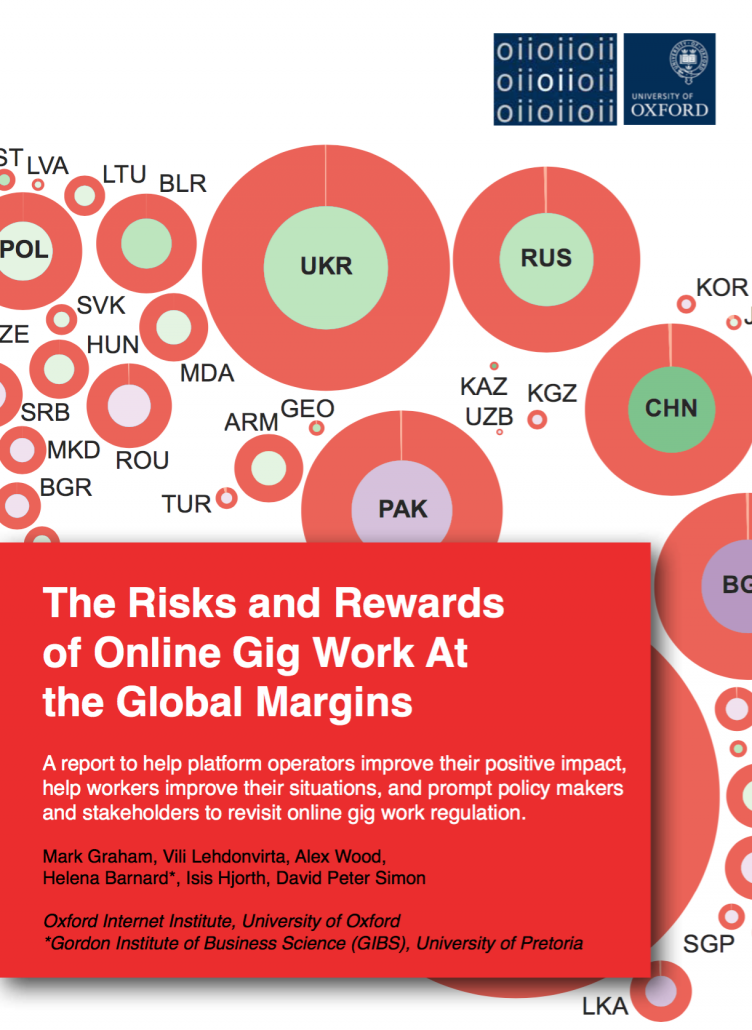This report is based on a three-year investigation conducted by researchers from the Oxford Internet Institute (OII) at the University of Oxford and the Gordon Institute of Business Science (GIBS) at the University of Pretoria.
Online gig work is becoming increasingly important to workers living in low- and middle-income countries. Our multi-year and multi-method research project shows that online gig work brings about rewards such as potential higher incomes and increased worker autonomy, but also risks such as social isolation, lack of work–life balance, discrimination, and predatory intermediaries. We also note that online gig work platforms mostly operate outside regulatory and normative frameworks that could benefit workers.
This report summarises the ways in which observed risks materialise in the market, highlighting responses from a 456-respondent survey and stories from 152 interviews. The report’s central question is whether online gig work has any development potentials at the world’s economic margins. Its motive is to help platform operators to improve their positive impact, to help workers to take action to improve their situations, and to prompt policy makers and stakeholders interested in online gig work to revisit regulation as it applies to workers, clients, and platforms in their respective countries.
Access the full report here:
Graham, M., Lehdonvirta, V., Wood, A., Barnard, H., Hjorth, I., and Simon, D. P. 2017. The Risks and Rewards of Online Gig Work At the Global Margins. Oxford: Oxford Internet Institute.
